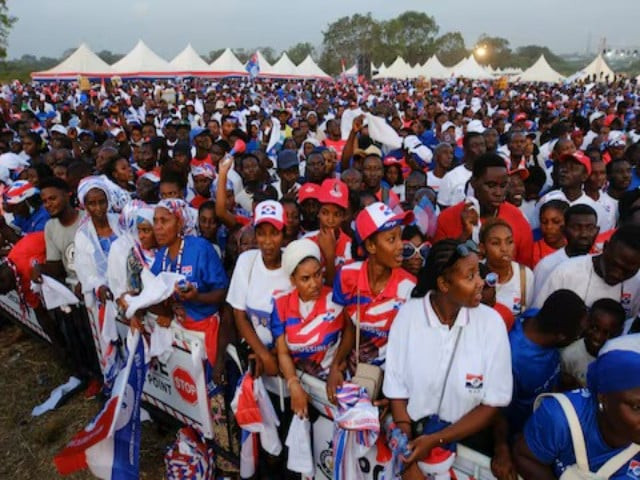Debt and growth dominate Ghana’s presidential polls
Economic recovery, corruption reforms, and IMF bailout terms dominate Ghana’s pivotal presidential election

Ghana will hold presidential and parliamentary elections on Saturday, with hopes of economic recovery following the worst financial crisis in decades, which resulted in a significant debt default.
President Nana Akufo-Addo, constitutionally limited to two terms, will step down next month, leaving the leadership contest open in this key cocoa and gold-producing nation.
Twelve candidates are competing for the presidency, but the main contenders are Vice President Mahamudu Bawumia, representing Akufo-Addo's New Patriotic Party (NPP), and former President John Dramani Mahama of the National Democratic Congress (NDC).
Mahama, who governed from 2012 to 2016, is seen as the frontrunner in opinion polls.
Polling stations will open from 0700 GMT to 1700 GMT.
Provisional legislative results may be available by Saturday night or Sunday, while the presidential outcome is expected by Tuesday, though early trends often indicate the likely winner.
Mahama, 66, has criticised Bawumia as a continuation of the policies that led to Ghana's financial difficulties and has pledged to renegotiate the terms of a $3 billion International Monetary Fund (IMF) bailout secured last year to restructure the country’s debts.
Speaking in Accra’s Madina neighbourhood, he vowed to fight corruption and restore fairness, which he argued has been lacking under current governance.
Bawumia, a 61-year-old former central banker, has emphasised Ghana’s progress towards economic recovery, highlighting a 6.9% year-on-year growth in the second quarter of 2024 – the fastest in five years.
He has promised to streamline the tax system, halve the number of government ministers, and reduce public spending by 3% of GDP.
Addressing supporters at the University of Ghana, he credited the government’s achievements as key to winning the election.
While the Ghanaian cedi has shown signs of strengthening, high inflation and concerns about government debt sustainability remain challenges for investors.
This election is viewed as significant not just for Ghana but for the broader West African region, where democratic processes are under scrutiny, according to Oxford Economics.
Out of Ghana’s 34 million citizens, approximately 18.7 million are registered to vote.



















COMMENTS
Comments are moderated and generally will be posted if they are on-topic and not abusive.
For more information, please see our Comments FAQ